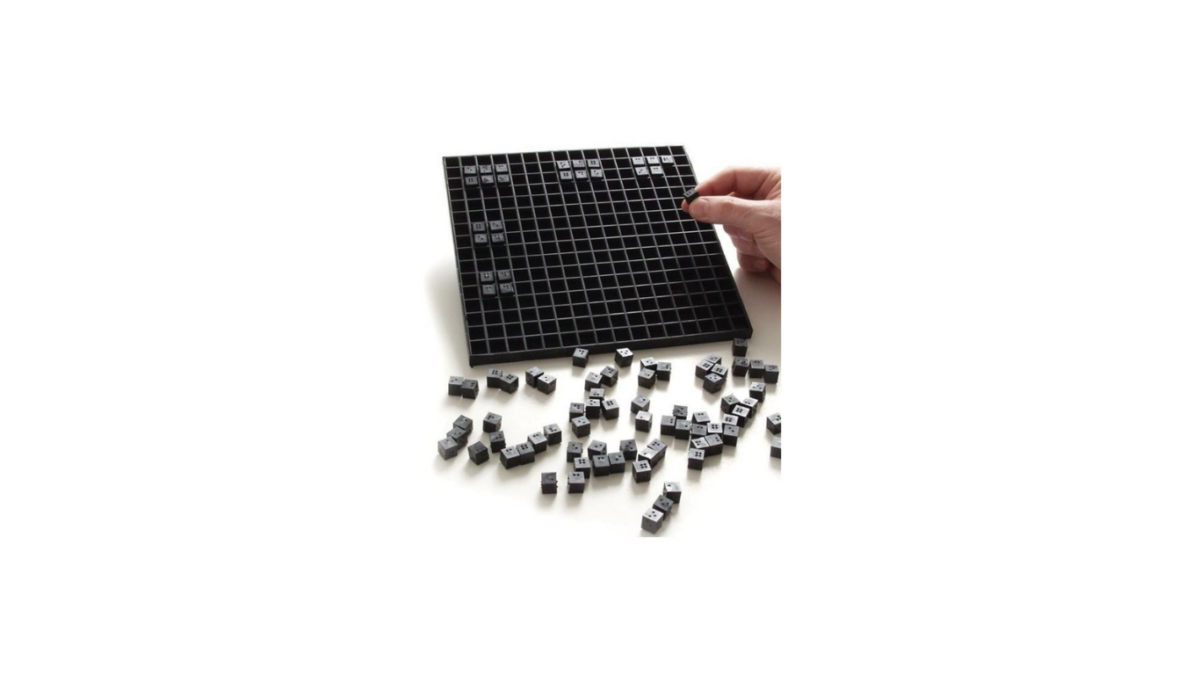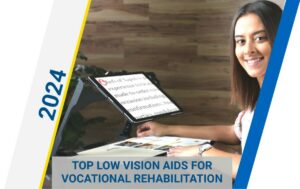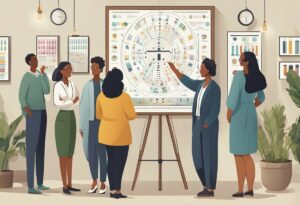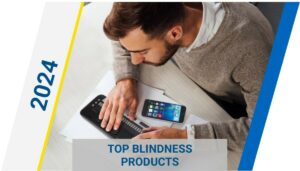Tools for the Blind – Cubarithm Board

In my previous blog entry, I talked about the abacus, which is not really a low vision or blindness technology, but more of an old-school calculating tool. I promised to put it into its proper perspective by comparing it with another tool used by people who are blind, the “Cubarithm board”, also known as a “Cubarithm slate.” I did a Web search and discovered that a couple of blindness products distributors still sell them.
The Cubarithm Board has two components, a plastic tray containing a grid of square holes, and a box of plastic cubes with braille numbers on them. While the Cubarithm may sound primitive, it was a great tool for teaching basic math concepts.
The cubes are identical, each containing 6 sides, with one braille digit on each side. Each cube can be turned so that it displays any digit from 0 to 9. That may seem confusing to those of you who do not use braille, so allow me to explain.
- The side containing a 2 can be turned 90 degrees so the two dots go across instead of up and down, making the digit a 3.
- A 4 can be re-oriented to make a 6, an 8, or a 0.
- A 5 can be turned into a 9.
Why I disliked the Cubarithm and love the abacus:
Cubarithm
- Tedious and time-consuming to use
- Cubes must be put back in their container when finished
- If you accidentally knock the box of cubes off the table, they go everywhere. Believe me, I know.
- If you knock the board off the table, your math problem goes everywhere
Abacus
- Small enough to put in your pocket
- You don’t need to know braille to use it
- It is an elegant and powerful tool
- If you knock it off the table, no harm done; the beads do not come off and fly around the room
Stay tuned for my next blog entry, which will be about what household products a person with low vision or blindness can easily identify by touch.
About the Author
This article was authored by Jerry Barrier, Assistive Technology Specialist on the New England Low Vision and Blindness Training Team.
Jerry has worked in the field of assistive technology for over 20 years. He spent six years as assistant manager at the Verizon center for customers with disabilities, followed by seven years as an assistive technology consultant specializing in work with Deafblind consumers. Most recently, he ended a nine-year stint at the Perkins School for the Blind in the field of assistive technology.
Jerry is past president and current secretary of the Bay State Council of the Blind, and past president of VIBUG, a long-standing Boston-based group of technology users.
His interests include audio production, accessible web design, and “birding by ear”. He has consulted on numerous accessibility projects with Mass Audubon and continues a long-standing working relationship with that organization.
If anyone is in need of training for their student, senior, co-worker or veteran, please contact New England Low Vision and Blindness to schedule a personal consultation. You can call our toll-free number 888-211-6933 or email us at info@nelowvision.com.



